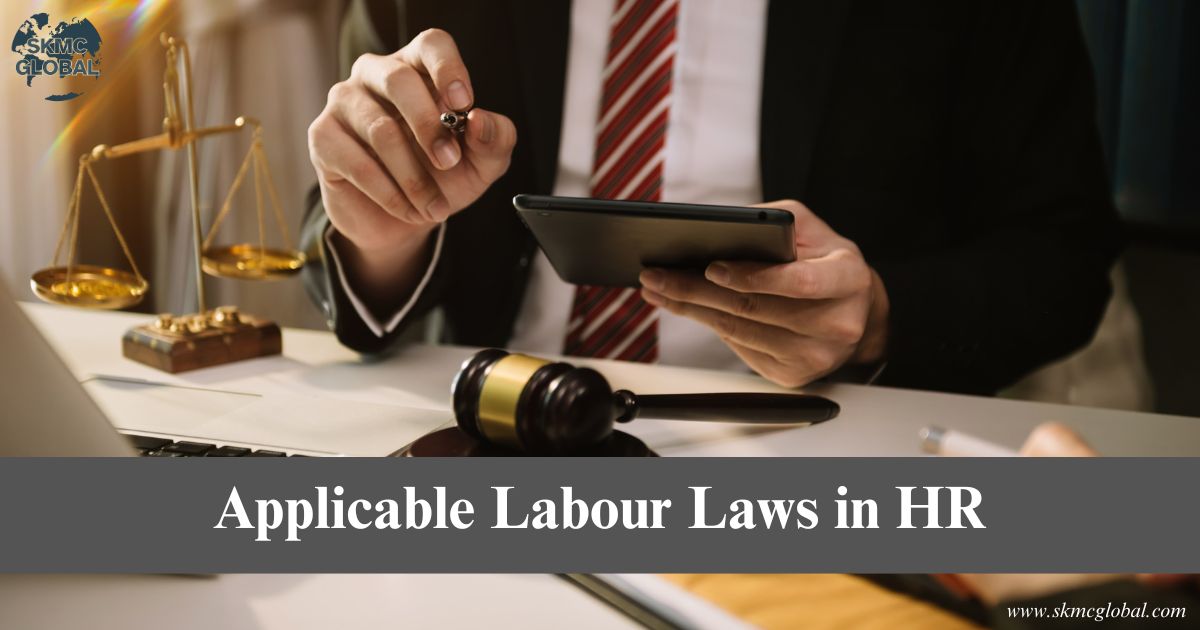
HR experts in India are the key individuals who keep the organisations abreast of hundreds of statutory employment and labour-oriented legislations. Labour Law knowledge in HR is necessary to ensure that the employer-employee relationship runs smooth, workplace safety is ensured, and legal conflicts are prevented. Since the labour legislations are being revised again and again, the HR activities should be adaptive in updating the labour legislations, settling labour grievances, and performing recurring Labour Law Compliance Audits.
This article provides an overview of labour legislations being headed by HR, among others, why they are relevant, landmark acts, and the role of HR, and how business can plan such events in the best way with the assistance of experts like consultants SKMC Global.
What is Labour Law?
Labour Law is the technical term used to identify the statute, rule, and regulation governing the employer-employee relationship. The labour legislation is enacted with the purpose of affording protection to the rights of the employees, protecting the terms of employment, establishing wage and work setting, and stopping exploitation. Labour law covers a wide array of topics such as industrial relations, employee welfare, minimum wage rate, social security, occupational health and safety, and conditions of employment.
Indian labour laws are the state government and the government of India and thus the labour laws accordingly HR professionals will also need to be well familiar with both levels of the labour laws. The labour laws apply to all, i.e., whether any enterprise is conducting business of manufacturing, trade, service, or IT.
Main Labour Legislation Which Is Applicable to HR
Several labour laws apply to HR functions. Some of the most important include:
- Factories Act 1948: In this Act apply to manufacturing units; addresses health, safety, welfare, and working conditions of the employees.
- Minimum Wages Act 1948: This Act talks about the provisions of Mandates minimum wage rates for various occupations and industries.
- Payment of Wages Act 1936: In this Act is mentioned the Regulation of payment of fixed wages within a reasonable time and ban on unauthorized deductions.
- Industrial Disputes Act 1947: This Act talks about the provisions of Deals with the investigation and conciliation of industrial disputes, retrenchment and lay-offs, and strike.
- Employees' Provident Funds and Miscellaneous Provisions Act 1952: In this Act the company Provides social security in the form of contribution to provident fund.
- Employees' State Insurance Act 1948: In this Act the company provides medical and cash benefits in case of sickness, maternity, or injury caused on the scheme premises.
- Shops and Establishments Act: Regulates office working conditions, commercial establishments, and shops.
- Payment of Gratuity Act 1972: Provides lump sum gratuity to the employees after five years' service.
- Maternity Benefit Act 1961: Provides maternity leave and related benefits.
- Equal Remuneration Act 1976: Imposes prohibition against discrimination in remuneration on grounds of sex.
- Sexual Harassment of Women at Workplace (Prevention, Prohibition and Redressal) Act 2013: Provides women-friendly workplace and formation of Internal Complaints Committees.
- Contract Labour (Regulation and Abolition) Act 1970: Regulates the labour by contract labour with a license and principal employer's registration.
Why Labour Laws in HR are Important ?
Labour Legislations in HR compliance is not mere compliance, but a need in order to build a good working environment. The following are the reasons why such legislations must be brought to HR:
- Compliance with the Law and Risk Avoidance: In non-compliance, there is penalty, fine, business closure, or lawsuit. HR compels the business to abide by and be law compliant.
- Employee Welfare and Productivity: Further, Labour law prescribes a decent minimum wage, working hours, holiday, fringe benefit, and protection and hence welfare and productivity are assured.
- Dispute Prevention and Settlement: Anticipatory HR management through labour law helps detection and settlement of possible labour disputes in an early stage.
- Brand Management: A compliant company builds employees', customers', and regulators' trust and hence brand value is created.
- Retention and Engagement of Employees: A compliant and ethical organization ensures employees' retention and loyalty.
HR Function for Labour Law Compliance
HR departments form the backbone of all companies' labour law compliance. Their key function is:
- Formulation and Implementation of Policies: Framing of employee policies and HR handbooks as per applicable labour legislations.
- Compliance in Payroll: Periodic calculation and payment of wages, PF, ESI, etc., and other statutory deductions.
- Record Keeping: Statutory registers, books, and records of Employer under Acts.
- Audits: Regular Internal Labour Law Compliance Audits are being carried out to be in complete compliance.
- Liaisons with Authorities: Liaison with labour department, PF officers, and ESI inspectors.
- Grievance Resolution: Redressal of grievances, imposition of disciplinary action, and representation on company's behalf in case of labour disputes.
- Orientation and Sensitization: Sensitization of workers to their rights, entitlements, and responsibilities under labour legislation.
- Vendors and Contractors Compliance: Third party vendors and contractors too in compliance with labour legislation.
To go to such an extent would place companies in legal as well as financial difficulties. The responsibility of HR in compliance with labour legislation cannot therefore be outsourced.
Conclusion
With the hectic life of regulation these days, Labour Laws familiar through HR is the most important strategy for organisational success and failure and welfare of employees. From pay to employee welfare, factory safety to employee benefits, labour laws pervade each HR activity.
Such regulations being dynamic and intricate in nature, HR professionals need to be constantly updated and in compliance with labour laws. Regular audits, instant reporting, and legal counsel need to be incorporated into every HR policy. Active compliance not only avoids labour lawsuits but also boosts company culture and workplace productivity overall.
SKMC Global offers complete support in keeping aware of labour legislations for any business. We support HR departments with compliance audit, statutory reports, and preparation of legally compliant HR policies. Our professionals check consultancy with central and state labour legislations and training of HR personnel on rule updates. We also offer support in resolving grievances at labour and court cases. Your business with SKMC Global is always in compliance and risk-free. Your company with SKMC Global is always compliant and risk-free.
Recent Posts
-
 The Step-by-Step NGO Registration Process in India...
Jan 17,2026
The Step-by-Step NGO Registration Process in India...
Jan 17,2026
-
 Secretarial Audit for Unlisted and Private Compani...
Dec 19,2025
Secretarial Audit for Unlisted and Private Compani...
Dec 19,2025
-
 How to Get CTE and CTO under Environmental Laws in...
Nov 27,2025
How to Get CTE and CTO under Environmental Laws in...
Nov 27,2025
-
 Step by Step guide for appointment of Independent ...
Nov 06,2025
Step by Step guide for appointment of Independent ...
Nov 06,2025
-
 Liaison Office vs Branch Office: A comparative ana...
Sep 02,2025
Liaison Office vs Branch Office: A comparative ana...
Sep 02,2025
-
 Role of Shareholders Agreement in Startups and Inv...
Aug 30,2025
Role of Shareholders Agreement in Startups and Inv...
Aug 30,2025
-
 Setting Up a Wholly Owned Subsidiary (WOS) in Indi...
Aug 12,2025
Setting Up a Wholly Owned Subsidiary (WOS) in Indi...
Aug 12,2025
-
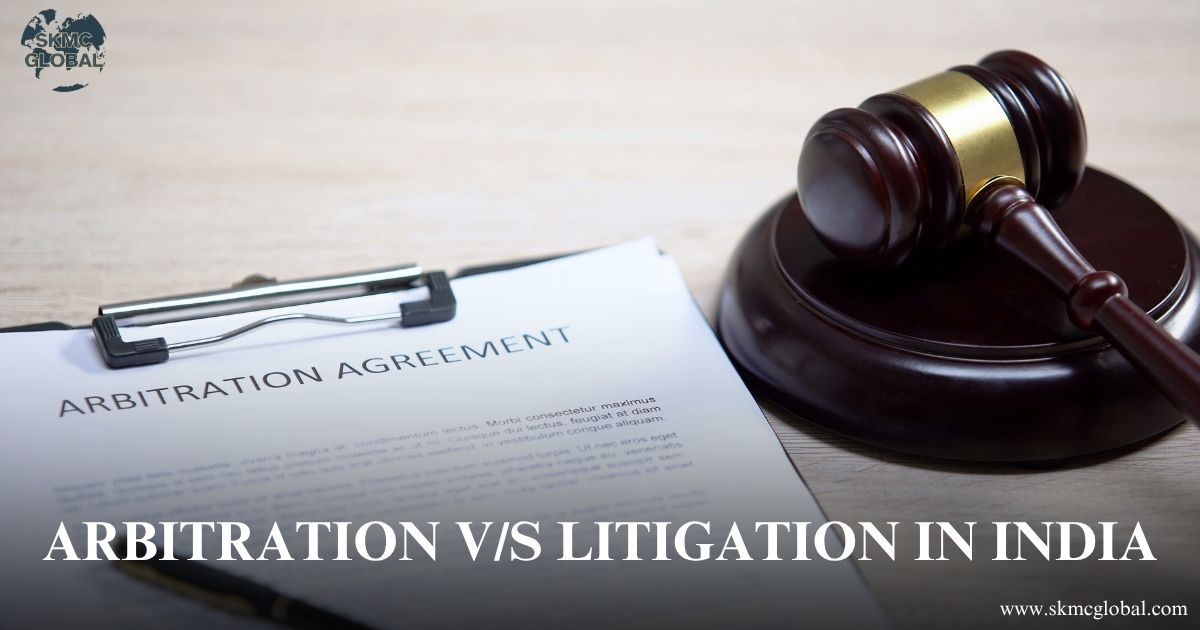 Arbitration v/s Litigation in India...
Aug 05,2025
Arbitration v/s Litigation in India...
Aug 05,2025
-
 Declaration of Dividend under Companies Act, 2013...
Aug 02,2025
Declaration of Dividend under Companies Act, 2013...
Aug 02,2025
-
 What is MSME Form 1 and how it can be filed?...
Aug 01,2025
What is MSME Form 1 and how it can be filed?...
Aug 01,2025
-
 What is CSR and how to compute the contribution am...
Jul 31,2025
What is CSR and how to compute the contribution am...
Jul 31,2025
-
 Process for removal of company auditor under Compa...
Jul 31,2025
Process for removal of company auditor under Compa...
Jul 31,2025
-
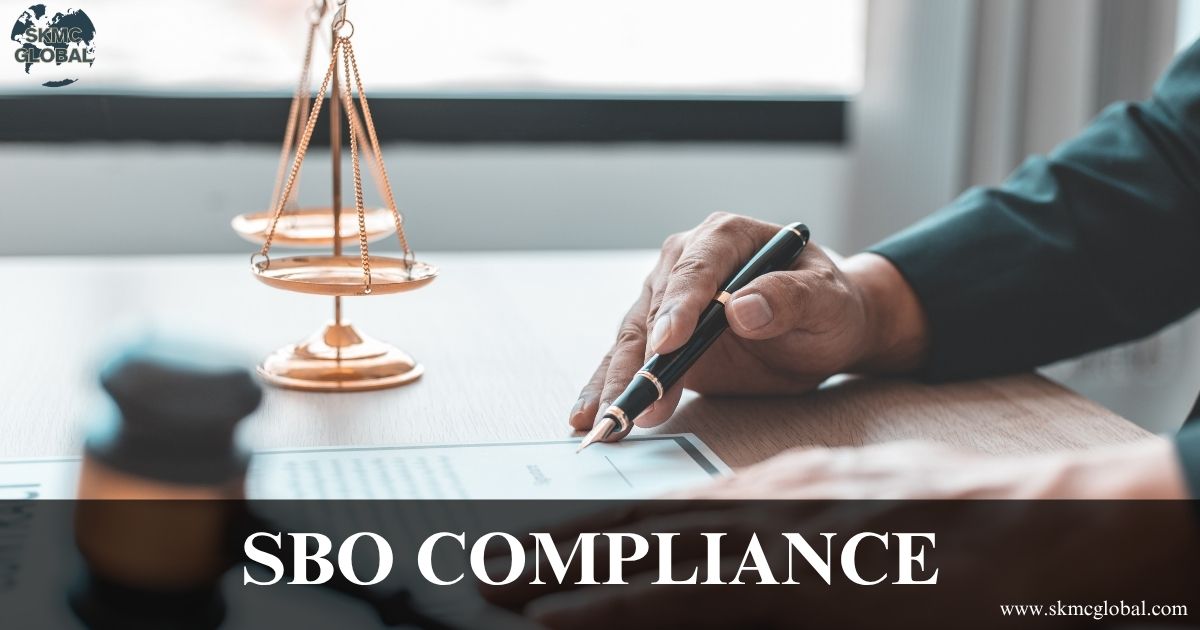 What is SBO Compliance and when it is needed?...
Jul 29,2025
What is SBO Compliance and when it is needed?...
Jul 29,2025
-
 Role of Key Management Personnel and their appoint...
Jul 28,2025
Role of Key Management Personnel and their appoint...
Jul 28,2025
-
 Registering a Partnership Firm in India...
Jul 28,2025
Registering a Partnership Firm in India...
Jul 28,2025
-
 Procedure to strike off a company...
Jul 28,2025
Procedure to strike off a company...
Jul 28,2025
-
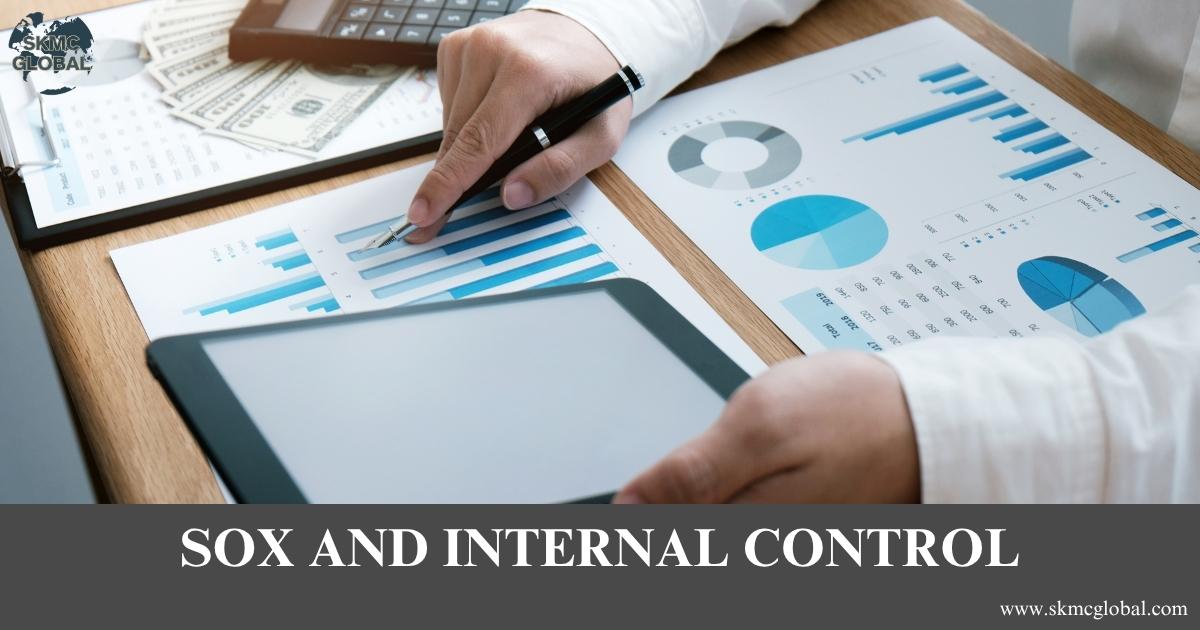 sox and internal control...
Jul 17,2025
sox and internal control...
Jul 17,2025
-
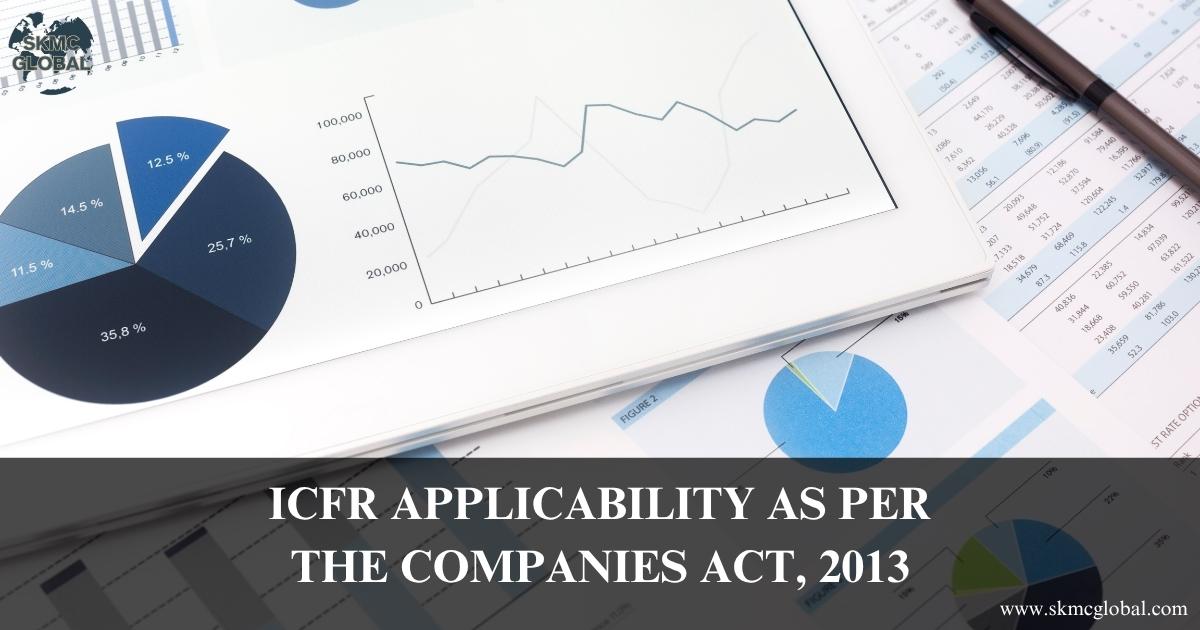 ICFR Applicability as per the Companies Act, 2013...
Jul 15,2025
ICFR Applicability as per the Companies Act, 2013...
Jul 15,2025
-
 Concept of Sweat Equity Shares and its uses...
Jun 25,2025
Concept of Sweat Equity Shares and its uses...
Jun 25,2025
-
 Whether loans and borrowing are considered as depo...
Jun 18,2025
Whether loans and borrowing are considered as depo...
Jun 18,2025
-
 What are the major compliance for unlisted compani...
Jun 05,2025
What are the major compliance for unlisted compani...
Jun 05,2025
-
 A Guide to Compensation to Director in Indian Corp...
Jun 04,2025
A Guide to Compensation to Director in Indian Corp...
Jun 04,2025
-
 Loans to Company Directors- A Legal and Ethical Fr...
Jun 04,2025
Loans to Company Directors- A Legal and Ethical Fr...
Jun 04,2025
-
 Top 7 Things You Must Know About External Commerci...
May 16,2025
Top 7 Things You Must Know About External Commerci...
May 16,2025
-
 Integrating CSR into Your Business Model:A Step-by...
May 14,2025
Integrating CSR into Your Business Model:A Step-by...
May 14,2025
-
 What are the applicable Labour Laws in HR (Human R...
May 14,2025
What are the applicable Labour Laws in HR (Human R...
May 14,2025
-
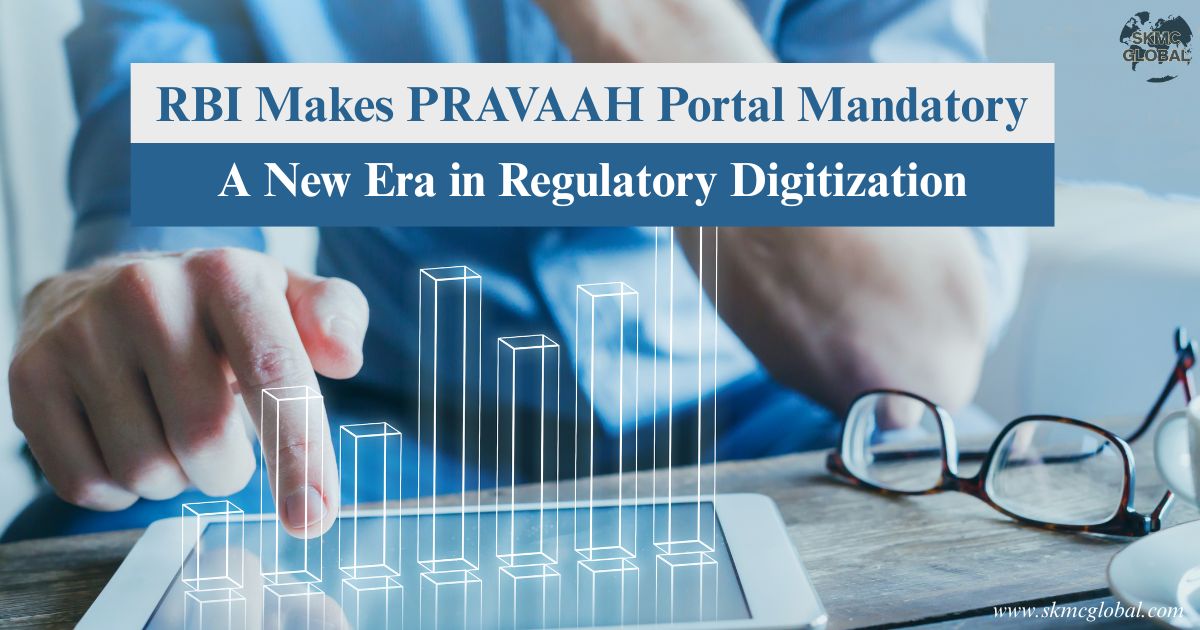 Unveiling the PRAVAAH Portal: A Comprehensive Guid...
Apr 18,2025
Unveiling the PRAVAAH Portal: A Comprehensive Guid...
Apr 18,2025
-
 FLA Return and its compliance...
Feb 08,2022
FLA Return and its compliance...
Feb 08,2022
-
 Process of closure of Branch office in India...
Dec 30,2021
Process of closure of Branch office in India...
Dec 30,2021
-
 Steps to Shut down the Liaison Office in India...
Sep 14,2021
Steps to Shut down the Liaison Office in India...
Sep 14,2021
-
 Procedure for closure of Project Office in India...
Aug 10,2021
Procedure for closure of Project Office in India...
Aug 10,2021
